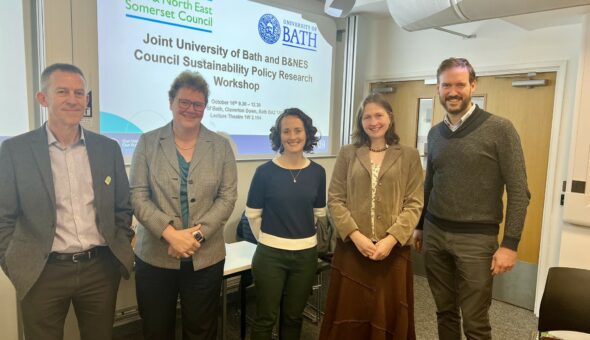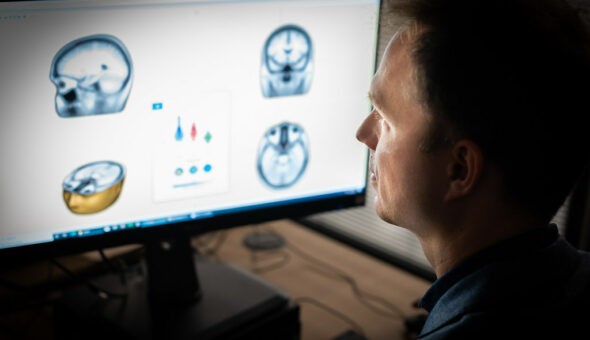Team work in research
Across research it’s becoming more and more apparent that research and its impact cannot be delivered without several different types of job roles and that people across these roles need to be recognised and supported. This changing landscape is visible through community-led movements amongst Technicians, research software engineers and professional research investment strategy managers (PRISMs) and top down initiatives such as UKRI’s 101 jobs that change the world campaign, and Research Culture work by Wellcome Trust, Royal Society, and the Russell Group that led (amongst other things) to the aspiration in the Government’s 2021 R&D People and Culture Strategy to address skills shortages across all roles, including research management.
However, when you get to institutional level you really start to understand the stories behind individual people's experiences in their roles: they love their job and the difference it makes but face barriers such as accessing career progression or development opportunities, or times when they’ve experiencing a feeling of isolation and not belonging. In this blog post, Dr Chloe Turner, SynHiSel programme Manager at the University of Bath, discusses how the Research Culture project has amplified the voices of the research enablers at the University.
Best wishes,
Professor Sarah Hainsworth
Exploring research enabling roles at Bath
If any of you caught the reveal of the first amazing images from the James Webb Telescope in July you may also have spotted the recognition given to Bill Ochs, project manager. Ochs brought over 1000 people in more than 17 countries together, ensuring the success of this extraordinary undertaking. Maybe you’ve also read articles highlighting the role Greg Robinson, program director, played when he brought his experience of projects in trouble and his interpersonal and trust building skills to the mission.
Here at Bath, we gained support from the Research England Enhancing Research culture fund in December to start to bring together and amplify the local voice of research enablers at the University; with a loose definition of a research enabler as someone who works in research-focused/facing roles in the Management Specialist and Administration (MSA) job family.
The funds allowed recruitment of Rachel Willis (Research Manager, SPS) and Cheryl Rothwell (Centre Coordinator, Mechanical Engineering) via an internal call for project officers. This gave them dedicated paid time so they could spend a day a week over two months on a research enablers project. With oversight from Chloe Turner (Programme Grant Manager, Chemical Engineering) they gathered feedback from current staff through surveys and workshops, and started developing an understanding of the current roles in Bath and the broader job market landscape.
From this, one message that was particularly strong was the need for a university-wide network. In April, Rajani Naidoo, Vice-President (community & inclusion) launched a research enablers network, designed to bring people together to share experience and opportunities. The University now has a Research Enablers Teams site, and the network are starting to build up some of the resources they’ve found helpful in their roles, including getting some new books on research enabling into the library.
Professsor Rajani Naidoo, Vice-President for Community and Inclusion says:
“Grassroots networks offer an important foundation to lead change within our University and I am really pleased to see the research enablers network growing. I want to see the University of Bath develop two way communication between those working across all parts and levels of the university and the senior leadership team. The research enablers network is an important part of this aspiration.”
Another key output from the research enablers project was a report shared with the University’s Research Culture Working group. The team and network members are now aiming to find ways of working together that will allow us to take the recommendations forward such as
- Developing how and when to cost research enablers in grant applications
- Finding ways to connect research enablers across the university
- Better visibility of research enabling roles available and progression routes
JOIN THE RESEARCH ENABLERS COMMUNITY
About 130 people have been identified as part of the research enabler community within the University but as this was done manually, anyone else who considers themselves in a research focused/facing role within the MSA job family is encouraged to stay informed by both join the network, and subscribe to research-enablers@lists.bath.ac.uk by logging in at the sympa list portal and contacting the list owners.
FUTURE INITIATIVES
The next Network meeting will be:
- Monday 6 February 12.00pm-13.00pm in 1W 2.102: Allan Houston from AV will lead a hands on workshop for getting the most from technology when you’re running hybrid meetings
Previous network sessions include Chris Carey on The Technicians commitment - “Learning from the experience of Technicians”, and Cathy Pink and Katy McKen on “CRediT (Contributor Roles taxonomy) author statements- sharing the diverse contributions to published works”.
We’re continuing to compile the collection of job descriptions into a library that will help us to understand the kind of roles available to research enablers, what skills are needed and how to build experience and knowledge to navigate a career path as a research enabler.
The project team also took part in ARMA’s November conference (Association of Research Managers and Administrators). This was a joint presentation with York and Newcastle and placed the voice of research enablers at our respective Universities onto a national platform. The session will also explore how we can share best practice across universities and encouraged conference delegates to build on experience and knowledge in our own institutions.
The Research England Enhancing Research Culture Fund has really catalysed this work, both at Bath and other institutions and with a further two years of funding confirmed by Research England we’re looking forward to seeing many of the recommendations from this initial project becoming reality.
Dr Chloe Turner, SynHiSel programme Manager, Department of Chemical Engineering, University of Bath.



